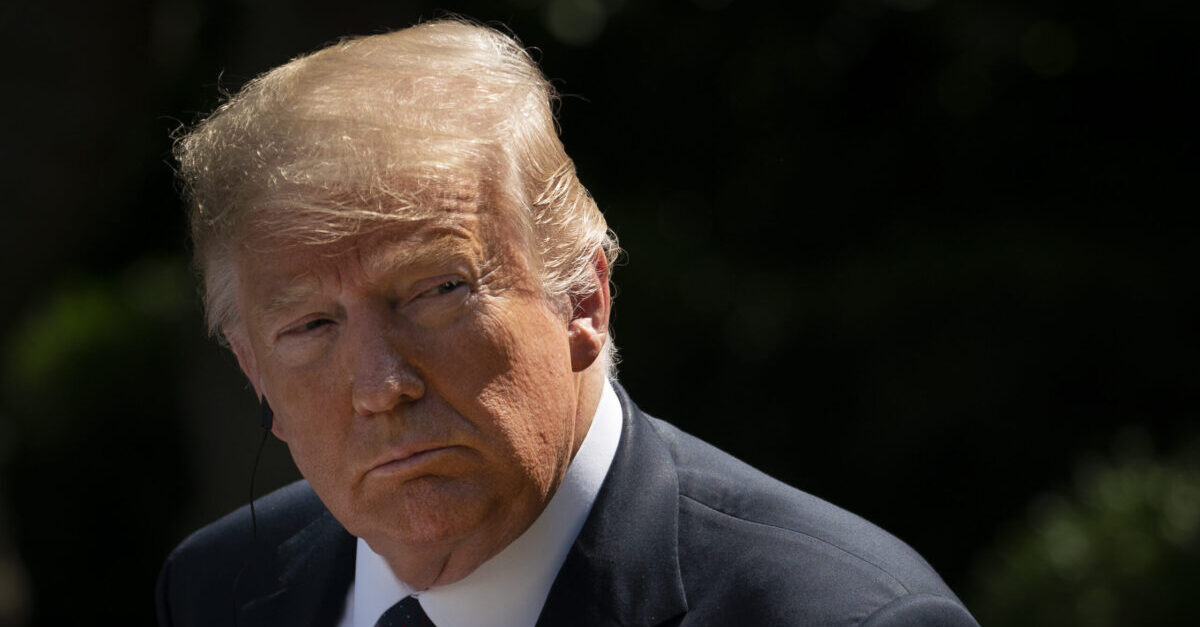
Manhattan District Attorney (DA) Cy Vance on Monday said his office will hold off on enforcing a subpoena for eight years of President Donald Trump’s personal and business financial records, agreeing to wait until a federal appellate court issues a ruling on the president’s emergency appeal.
The Vance subpoena stems from the DA’s ongoing grand jury investigation into the legality of hush money payments paid prior to the 2016 election, as well as allegations of bank fraud and insurance fraud. A district court judge in New York City on Thursday dismissed Trump’s second attempt to block enforcement of the subpoena against his personal accounting firm Mazars USA LLP, reasoning that the president did little more than reassert the “absolute immunity” argument that had already been rejected by the Supreme Court.
Trump’s attorneys then appealed to the U.S. Court of Appeals for the Second Circuit for an administrative stay pending the outcome of the appeal. The Second Circuit on Friday declined the request to issue an immediate administrative stay, scheduling oral arguments on the issue for Sept. 1. It was initially thought that the denial of a stay meant there was a window of opportunity for the Manhattan DA to enforce the subpoena, given that Vance previously said he would wait seven days to do so. Vance’s office said Monday, however, that it will wait to enforce the subpoena after the appellate court reaches a decision on Trump’s appeal.
“The Second Circuit properly held in its August 21 Order that no administrative stay of the Mazars Subpoenas is warranted, as your client is highly unlikely to succeed on the merits of his appeal and will not suffer irreparable harm if a stay is not entered,” Manhattan DA General Counsel Carey R. Dunne wrote in a letter to Trump’s attorneys. “To ensure the Second Circuit has ample opportunity to consider thoroughly the arguments raised in your stay papers, and to avoid undue further delay, the New York County District Attorney’s Office hereby agrees to forbear on enforcement of the Mazars Subpoena until 5:00 pm on the second calendar day after the Second Circuit issues a decision on your application for a stay pending appeal.”
Legal experts tend to agree that Trump will ultimately not win his appeal, but may succeed in further postponing the release of his financial records.
While Vance’s office agreeing to Trump’s request may appear to assist the president, who has successfully used the courts to delay enforcement of the subpoena for more than a year, University of Texas law professor Steve Vladeck commented that this wasn’t necessarily the case.
“It’s not much of an assist given that the Second Circuit is moving very quickly and that [the U.S. Supreme Court] might well have intervened anyway. Now, when the Second Circuit rules against Trump, Vance will be on firmer footing in opposing a stay from the Supreme Court,” he wrote.
According to Vladeck, it is now likely that the case won’t reach the high court until sometime in early September.
Assuming Vance’s office does obtain the records, due to grand jury secrecy rules, they will remain confidential unless a court orders otherwise. The contents of the documents could also begin to be made public if the DA’s office files criminal charges. It’s unclear, even then, how much of the president’s records will enter the public sphere.
Read the letter from Vance’s office below:
Vance Filed Letter on Trump Subpoena by Law&Crime on Scribd
[image via Drew Angerer/Getty Images]